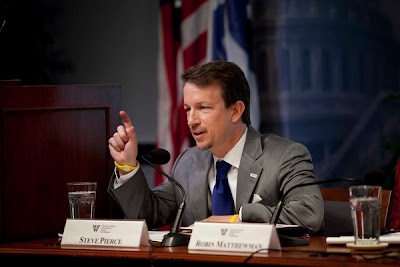The Civil
Society "Core Group" of the IDPS (International Dialogue on Peacebuilding and
Statebuilding) is a network of Southern and Northern civil society
organizations that are collaborating to engage with governments on issues of
development effectiveness in conflict-affected states. 3P and AfP met with
other members of the Core Group in The Hague to discuss opportunities, goals, and strategies for
promoting peacebuilding approaches to international engagement in
conflict-affected countries. The
conference helped strengthen and enhance the impact of the Civil Society Core
Group to further streamline civil society's collaboration across
conflict-affected countries and Northern donor countries.
3P also
works actively within the Core Group's "Political Strategy Working
Group" (PSWG), chaired by Melanie Greenberg, President of the Alliance for
Peacebuilding, and Larry Attree, Conflict & Security Advisor for Saferworld. The working group's mandate is to develop and
steer the Core Group's strategies for increasing political will among donor and
host governments for making the concrete reforms needed in bilateral aid
systems and country-level development processes for more sustainable
peacebuilding and statebuilding outcomes in conflict-affected societies.




